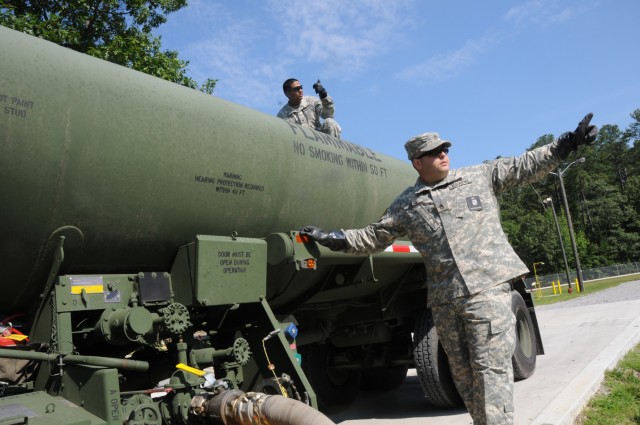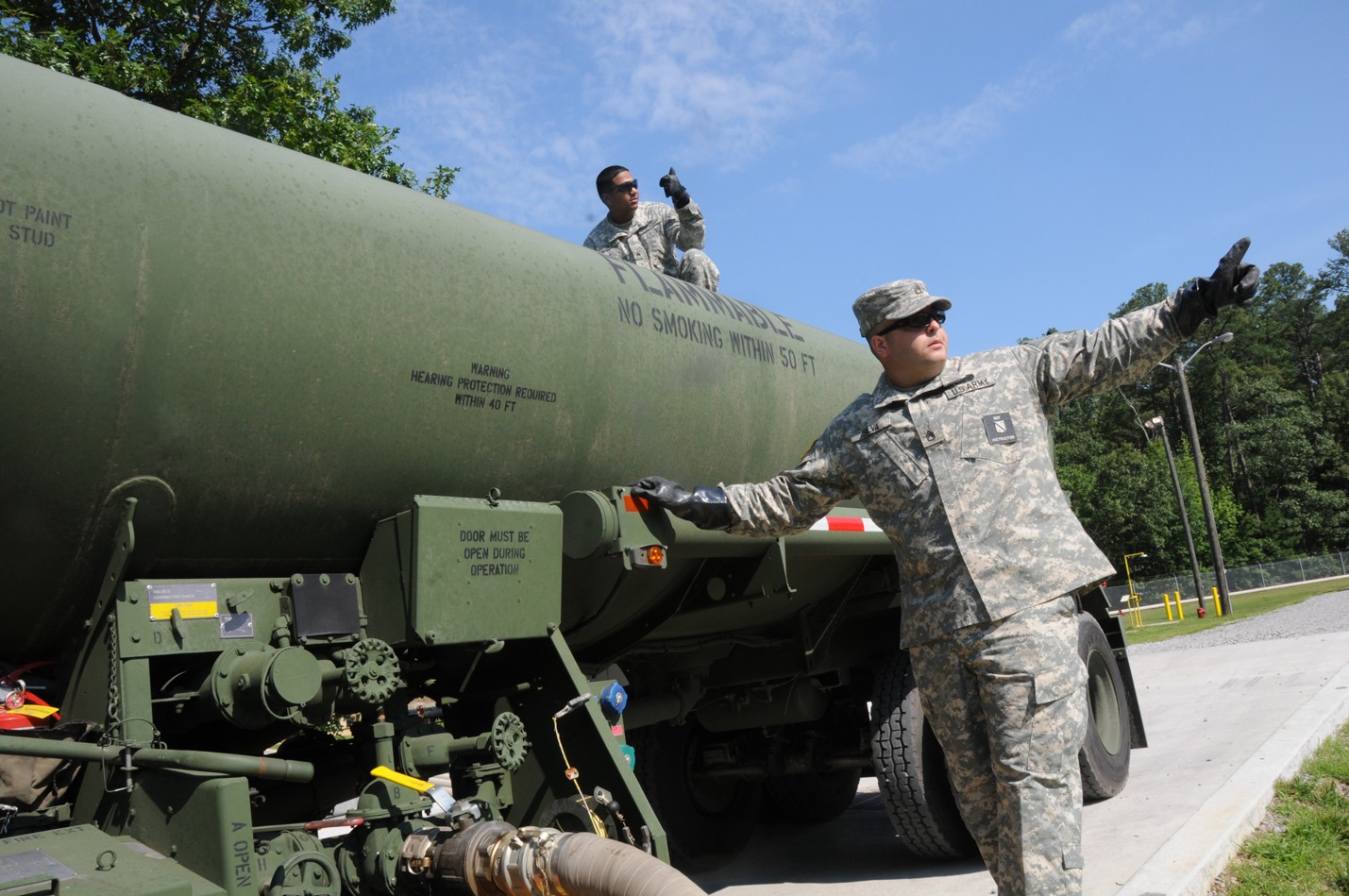
FORT LEE, Va. (June 17, 2010) -- It's not often that instructors can take a hiatus away from the teaching platform.
But that's what the Quartermaster School's Petroleum and Water Department instructors did the past two weeks, supporting the multi-state Quartermaster Liquid Logistics Exercise.
QLLE, which began June 5, seeks to exercise the capabilities of the U.S. Army Reserve petroleum units at all levels by undertaking commercial fuel distribution missions.
More than 2,500 Soldiers, mostly from Fort Belvoir's 165th Quartermaster Group, participated in the exercise, which stretches from several east coast states to a few out west to include California and Arizona. Members of the 164th and 475th QM Groups supported the exercise.
About 12 military and Civilian instructors from PWD's Laboratory Training Division played a part as well. Division Chief Jose A. Hernandez said the exercise was a beneficial to those who don't get much real-world experience being assigned to a schoolhouse.
"For our guys, it's the same mission they would do if we were in the fight, issuing fuel to trucks out of a bag," said Hernandez, referring to the transportable, flexible storage tanks used in tactical areas. "Additionally, this is the kind of exercise that allows the instructors to refresh themselves to become better instructors. We're supporting the fight, we're supporting USAR and our technical experts will get better as a result of this."
The technical experts can thank the Defense Energy Support Center for that. DESC, a subordinate element of the Defense Logistics Agency, is responsible for the distribution of fuel to military installations and other locations. For the exercise, DESC allows Soldiers to replace contractors to distribute fuel across the country, providing them with practical experience. Lt. Col. Larry Scheetz, 328th Petroleum Liaison Detachment, Kingwood, W. Va., said this is the main gist.
"For a lot of young Soldiers, (the benefit) is training in their MOSs," he said, noting that Soldiers were also running fuel out of Forts Pickett and A.P. Hill. "Some have only gone through a schoolhouse and have never really had hands-on training. It's kind of unique because they get to experience what they would do at their units: truck drivers get to drive trucks, fuel handlers get to handle fuel and the petroleum lab guys get to test the fuel. It's a win, win situation."
During the exercise, PWD's piece consisted of checking vehicles, testing fuel and issuing fuel from PWD storage tanks to fuel trucks headed to Langley Air Force Base. Sgt. 1st Dion Chapman, operations sergeant, LTD, said the exercise was realistic.
"The training here (during the exercise) prepares Soldiers for combat missions in Kuwait, Iraq and Afghanistan," he said. "It's an opportunity for us to stay petroleum savvy. It's something else we can put in our tool bag to keep up our operational knowledge of petroleum operations."
Hernandez agreed, noting that contractors have taken over responsibility for a number of logistics-related missions, forcing Soldiers trained in those specialites to take on other roles.
"Sometimes our technical experts are doing other missions," he said, "so this exercise is an opportunity in which they are able to do it. These guys will get enough training in this two-week period that they'll be ready to execute their wartime missions should they be called."
The QLLE ends tomorrow.

Social Sharing